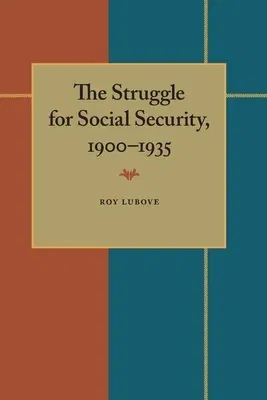Roy Lubove
(Author)The Struggle for Social Security, 1900-1935Paperback, 15 March 1986

Qty
1
Turbo
Ships in 2 - 3 days
In Stock
Free Delivery
Cash on Delivery
15 Days
Free Returns
Secure Checkout

Part of Series
Contemporary Community Health Series
Print Length
304 pages
Language
English
Publisher
University of Pittsburgh Press
Date Published
15 Mar 1986
ISBN-10
082295379X
ISBN-13
9780822953791
Description
Product Details
Author:
Book Format:
Paperback
Country of Origin:
US
Date Published:
15 March 1986
Dimensions:
22.86 x
15.24 x
1.7 cm
ISBN-10:
082295379X
ISBN-13:
9780822953791
Language:
English
Pages:
304
Publisher:
Weight:
439.98 gm